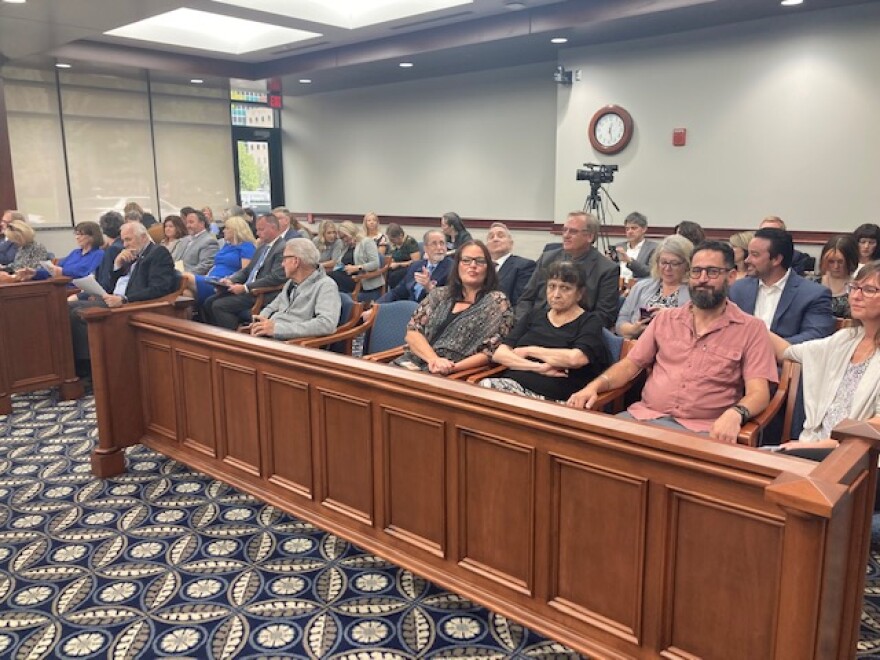A state Senate committee held a hearing Wednesday on bills seeking to restore access to care for severely injured car crash survivors.
Supporters of the bills held a rally in front of the state Capitol building the day before.
The bills would amend Michigan's 2019 auto no-fault law. That law cut payments for most care providers below the cost of providing services.
The Insurance Alliance of Michigan says the fee cuts in the law have saved people money on car insurance.
But bill sponsor and committee chair, Democrat Mary Cavanagh, testified that many people lost their care, and some people even died as a result of those fee cuts.
"There are other ways we can lower rates that does not restrict the care available for injured Michiganders medically necessary for their need of survival," she said.
Cavanagh said the bills set reasonable and fair rates for crash survivors' care. State Senator Sarah Anthony, a Democrat, also testified in favor of both bills, agreeing that the fee cuts were devastating.
"This has to led to thousands of patients being forced out of their full time care, the loss of health care jobs and facilities closing their doors," Anthony said.
Also testifying was Tom Judd, executive director of the Michigan Brain Injury Provider Council. He said since 2019, medical care providers have had to turn desperate survivors and their families away due to the fee cuts.
"For too long, our members have been slandered by the public relations arm of the auto insurance industry, broadly labeling them as greedy and unethical providers," he testified. "The insurance industry has been allowed to make blanket statements about dedicated heroes who work every day to help people recover from traumatic injuries. Our ability to perform essential services was ripped away with the passage of [the 2019 law]."
The law also set a 56 hour-a-week total limit on the number of hours insurance has to cover for family and friend caregivers. The bills would allow family and friends to be paid for providing as many hours of care as needed.
Maureen Howell testified she has been one of her son Sam's family caregivers ever since his devastating car accident in 2005.
She said family caregivers, too, were slandered in the halls of the state Legislature and in newspaper articles prior to the passage of the law. Loving, dedicated family members who gave up their former lives and careers to care for loved ones with brain injuries and spinal cord injuries were defamed and accused of profiting and enriching themselves from the tragedy befalling their families, she said.
Howell urged legislators to put themselves in the shoes of those who have already experienced those tragedies.
"If you can — and it's hard to do — imagine that tonight, you get a call," Howell told the committee. "It's your loved one that's been in a crash. It could be your son, your daughter, your husband or wife, your parents. Imagine it, because it happens to a thousand Michiganders every single year, according to the MCCA. Getting into our cars is the most dangerous thing most of us do on a daily basis. We are all potential survivors. Please fix this reform by passing the lifesaving Senate Bill 530 and 531 — before others suffer and die."
The Insurance Alliance of Michigan will testify at a later hearing. The group opposes the bills, saying the 2019 law has given people more choices in their auto insurance coverage, and the proposed changes would cause insurance companies to raise rates.









